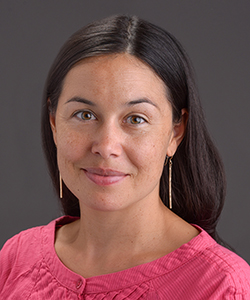
Native American people in the U.S. have a higher prevalence of cardiovascular disease compared to all other racial categories, according to the Centers for Disease Control and Prevention. Stress, trauma and racism occur at high rates within Indigenous communities and have not been explored as potential contributors to cardiometabolic disease (CMD). But a research team led by an Indigenous faculty member from the University of Missouri School of Medicine and two prominent Indigenous physicians at other institutions recently examined this link and found increasing evidence that culturally specific health behaviors and activities can lessen the negative effects of these stressors.

“Indigenous people not only suffer from traditional CMD risk factors, such as elevated blood sugar, hypertension and obesity, they also now face some of the highest rates of discrimination in all areas of our society,” said principal investigator Melissa Lewis, PhD, associate professor of family and community medicine. “When combined with the historical trauma that Indigenous people have experienced, there is additional mental health distress, which is another significant risk factor for CMD.”
Lewis described that settler-colonialism has prohibited positive health behaviors through traditional Indigenous lifeways including hunting, fishing and foraging and replaced them with Western systems of farming, food systems and religion. While the researchers said further investigation is needed, they documented several promising interventions already being used in some Indigenous communities that reduce CMD risk. The strategies incorporate culture, history and needs of Indigenous people.
“Research suggests that those who participate in traditional Indigenous cultural activities have a reduced risk for CMD,” Lewis said. “Other interventions we reviewed aim to reduce racism experiences toward Indigenous people and include social justice and cultural humility training of health care providers, educators and administrators.”
In one study involving a tribe in the southwest U.S., a group that learned tribal history, language and craft-making lost more weight and had lower blood glucose levels than those who engaged in standard physical activity and diet intervention.
“This research project represents the work of Indigenous leaders in the field of medicine, which has enabled room for additional theories and practices to be considered within the science of CMD,” Lewis said. “In particular, we work to privilege Indigenous knowledge, science and viewpoints and put them in equal standing with Western medicine to help tackle this growing problem.”
In addition to Lewis, co-authors include MU School of Medicine student Elizabeth Modde; Hannah Volpert-Esmond, PhD, University of Texas at El Paso; Jason Deen, MD, University of Washington; and Donald Warne, MD, University of North Dakota.
Their study, “Stress and Cardiometabolic Disease Risk for Indigenous Populations throughout the Lifespan,” was recently published in the International Journal of Environmental Research and Public Health. Support for this study was provided by the National Heart, Lung and Blood Institute of the National Institutes of Health and the Center for Diabetes Translation Research at Washington University in St. Louis. The authors of the study declare that they have no conflicts of interest related to this study and the content does not necessarily represent the official views of the funding agencies.





